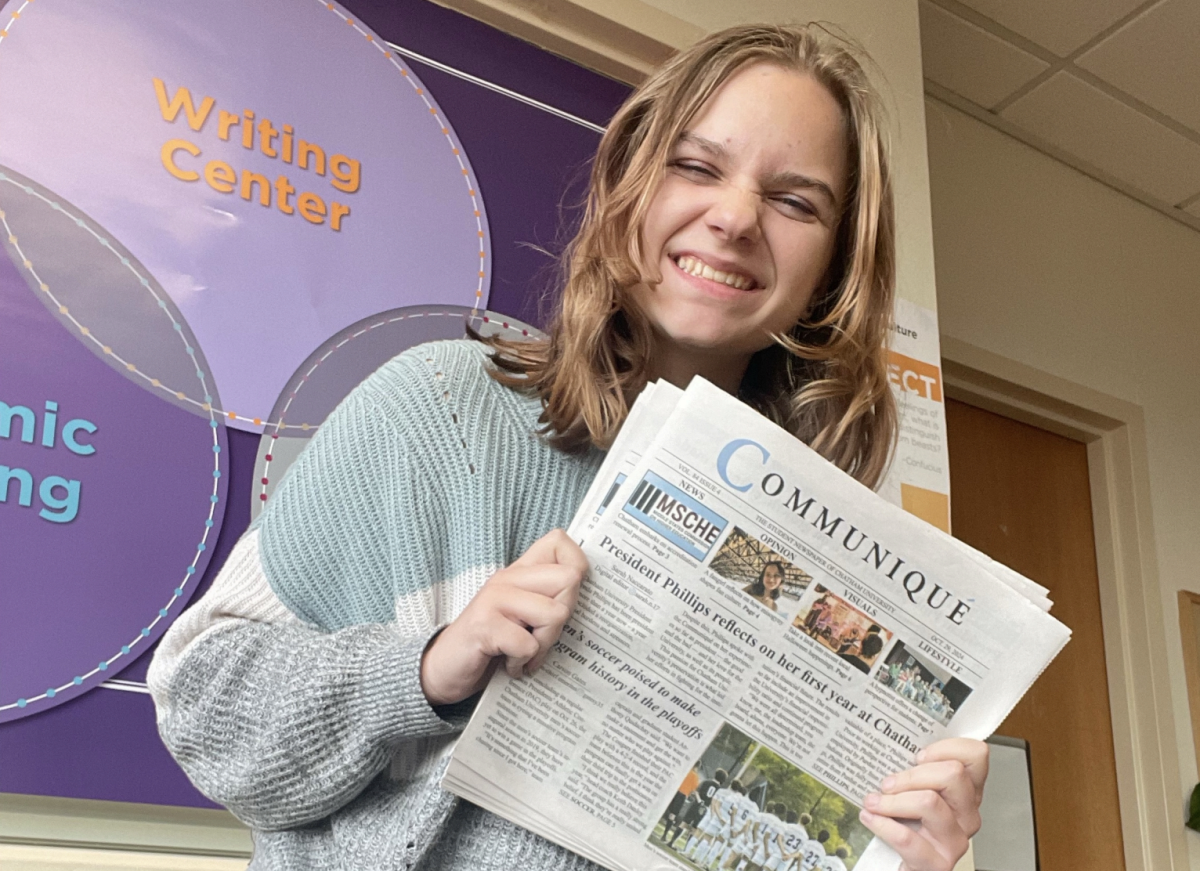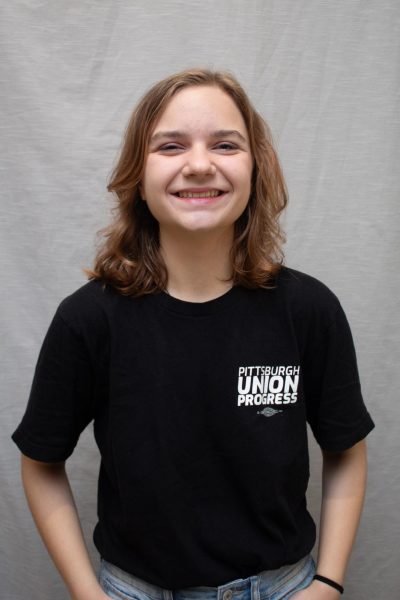I had it all laid out: part-time community college for four years until I turned 18, transfer to Chatham University, get a creative writing degree in two years, graduate and get a job in publishing.
I was halfway down the yellow brick road when the Communiqué jumped out of the shadows with a baseball bat and bashed those hopes in.
Frankly, I was tricked. I thought I was writing one opinion story about something I was passionate about — having gender-neutral bathrooms on campus — when suddenly, I’m the next opinion editor.
I blame former opinion editor Abbey Sullivan ‘22 for writing “staff writer” next to my name in the story assignment list when I first pitched that opinion piece. I remember thinking, “I just joined the staff?”
In fact, I blame the entire staff for being friendly, approaching me after classes and around campus and inviting me to hang out and go to parties, making it entirely too awkward to quit.
And let’s not forget the Communiqué’s adviser Sara Bauknecht, who helped me change my major to journalism after I foolishly fell in love with the work I was doing.
Really, journalism ruined everything for me. Being a journalist is inconsistent with everything I’ve ever wanted in life. I’m an introvert, a homebody, I like sleeping eight hours a day and being paid a living wage. Journalism often conflicts with all of that.
Journalists and editors I respect and admire have told me to pick a more forgiving career. You may be wondering why I still want to be a journalist.
There’s no better way of illustrating it than to paint a picture for you: my second summer in college, I interned with the Pittsburgh Jewish Chronicle. One of my earliest assignments was to go to the home of a 99-year-old Holocaust survivor — just a few weeks shy of his 100th birthday — and write his story of survival.
I stayed composed during the interview, but as soon as I went home to write, I broke down crying. There were many moments like that over that summer. I worked with a team of reporters covering the Pittsburgh synagogue shooting trial, and I spent most mornings before trial days sleep-deprived and suppressing nausea. I rarely slept the nights before.
If I could do anything else on Earth and be happy, I would. But that summer is the reason I know with absolute certainty that I couldn’t do anything else.
Working with the Chronicle showed me the importance of journalism. Many of the Chronicle’s readers had a direct connection to the shooting; friends and family of victims, even survivors, were reading those stories.
These were stories that mattered to them.
Being able to tell someone’s story is an honor I would not trade for anything, not for eight hours of sleep and certainly not for money.
Truly, I have seen the worst journalism has to offer. I’ve had back-to-back 12-hour days. I’ve had to get up at 4 a.m. to write stories. I’ve been chewed out by prospective sources and have probably made myself an enemy of most of the scabs still working at the Pittsburgh Post-Gazette despite the ongoing unfair labor practice strike.
But every day I get to write a story, I am overcome with the significance of what that means.
And without the Communiqué, I never would have had the opportunity to tell any stories. As I prepare to graduate this semester, I find it a little difficult to fathom a life without this newspaper, but I know I owe my happiness to it.
So, thank you. Thank you to my wonderful staff for trusting me with editing their stories, thank you to my editors for editing mine and thank you, the Chatham community, for letting me tell your stories.
It was the greatest gift.



